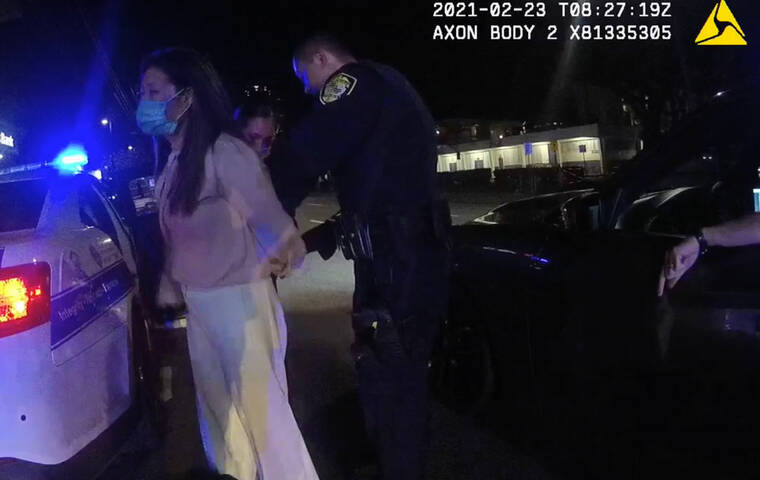The highly publicized drunken driving trial of state Rep. Sharon Har landed with an unsatisfying thud this week.
After hearing the prosecution’s case, Judge Steven L. Hartley on Monday dismissed the case on procedural grounds and granted a motion for judgment of acquittal.
The dismissal stemmed from a Dec. 10 state Supreme Court ruling on the proper filing of criminal complaints. The acquittal, however, raised a few eyebrows — and understandably so. The public is left to wonder whether, absent the benefit of hearing both sides of the case in court, the judge got it right.
Honolulu Prosecutor Steve Alm didn’t think so. In an unusual move, he took his argument to the court of public opinion at a press conference the following day.
Alm, himself a former judge, criticized Hartley for concluding that the prosecution hadn’t made its case beyond a reasonable doubt, even when viewing the evidence in a light most favorable to the prosecution.
He used PowerPoint slides and large maps to highlight the prosecution’s evidence: Har had been stopped while driving the wrong way on one-way Beretania Street on the night of Feb. 22, shortly after she left a Moiliili bar. She appeared to be under the influence of alcohol “sufficient to impair her normal faculties.” She struggled to pull into a parking lot and couldn’t provide proof of insurance at the scene. She refused to take a field sobriety test.
In Har’s defense, attorney Howard Luke said his client consumed, at most, only about half a bottle of beer, although there were four bottles on the table. Body cam footage appeared to show her entering and exiting a police car with no sign of impairment, even though she was wearing high heels. She followed the instructions of a police officer in entering the parking lot. And although she was unable to immediately find her insurance card, she did have up-to-date insurance.
Regardless, the legal case has been settled. But even in light of evidence most favorable to Har, she is not off the hook.
After all, she was driving the wrong way on a major city thoroughfare, which is always dangerous.
She refused to take a sobriety test even though she should have known better: She helped pass a law to increase the original one-year license revocation for refusing a breath or blood test to two years.
At the time of the incident, Har acknowledged her “impaired driving,” blaming it on consuming a combination of beer and prescription medication containing codeine — an obvious no-no for anyone who reads the warnings on drug labels.
She must make amends, to the Legislature and the public she serves. And assuming she seeks reelection this year, her constituents in Kapolei and Makakilo will have to decide whether her actions constitute a fireable offense.

